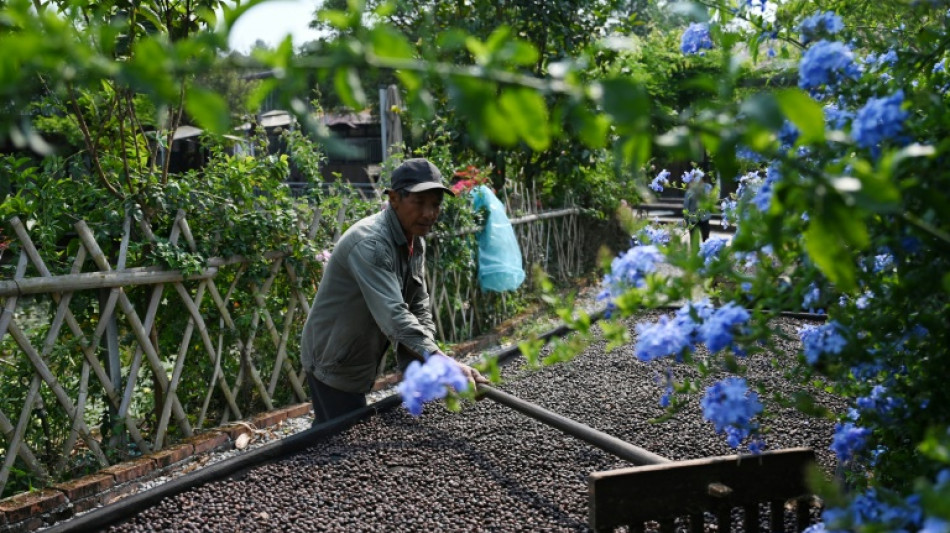
-
 Nawaz sparks Pakistan to five-wicket ODI win over West Indies
Nawaz sparks Pakistan to five-wicket ODI win over West Indies
-
Lions' Norris hospitalized after scary injury, NFL pre-season game suspended

-
 Restored Nagasaki bell rings in 80 years since A-bomb
Restored Nagasaki bell rings in 80 years since A-bomb
-
Putin-Trump summit: what we know so far

-
 Australia settle on Marsh and Head as T20 openers
Australia settle on Marsh and Head as T20 openers
-
New York declares total war on prolific rat population

-
 Patriots unveil statue honoring iconic quarterback Tom Brady
Patriots unveil statue honoring iconic quarterback Tom Brady
-
Slot's new-look Liverpool under the spotlight in Community Shield

-
 Five astronauts leave space station for trip back to Earth
Five astronauts leave space station for trip back to Earth
-
Trump and Putin to meet in Alaska next Friday

-
 NBA to open season with blockbuster showdowns: report
NBA to open season with blockbuster showdowns: report
-
Brazil's Lula vetoes parts of environmental 'devastation bill'

-
 Trump says Armenia, Azerbaijan commit to end fighting 'forever'
Trump says Armenia, Azerbaijan commit to end fighting 'forever'
-
Toronto champion Shelton to start Cincy against Argentine outsider

-
 US astronaut Jim Lovell, commander of Apollo 13, dead at 97
US astronaut Jim Lovell, commander of Apollo 13, dead at 97
-
Trump says to meet Putin next Friday in Alaska

-
 Fire extinguished, historic mosque-cathedral in southern Spain 'saved'
Fire extinguished, historic mosque-cathedral in southern Spain 'saved'
-
Trump demands $1bn from University of California over UCLA protests

-
 Fire contained, historic mosque-cathedral in southern Spain 'saved'
Fire contained, historic mosque-cathedral in southern Spain 'saved'
-
US health chief based vaccine cuts on misinformation, researchers say

-
 US astronaut Jim Lovell, commander of imperiled Apollo 13, dead at 97
US astronaut Jim Lovell, commander of imperiled Apollo 13, dead at 97
-
Trump says will meet with Putin 'very shortly'

-
 Barcelona reinstate Ter Stegen as captain
Barcelona reinstate Ter Stegen as captain
-
Fleetwood leads St. Jude in search of first US PGA Tour title

-
 Gold futures hit record on US tariff shock; mixed day for stocks
Gold futures hit record on US tariff shock; mixed day for stocks
-
Trump says Armenia, Azerbaijan committed to end fighting 'forever'

-
 England's injured Woakes still has Ashes hopes
England's injured Woakes still has Ashes hopes
-
US astronaut Jim Lovell, Apollo 13 commander, dead at 97

-
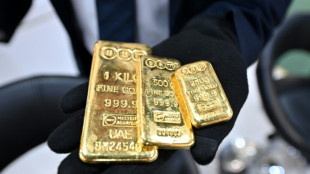 Swiss gold refining sector stung by US tariffs
Swiss gold refining sector stung by US tariffs
-
New Instagram location sharing feature sparks privacy fears

-
 Spain's Badosa withdraws from US Open
Spain's Badosa withdraws from US Open
-
Mexico seeks compensation from Adidas in cultural appropriation row

-
 NBA Celtics sign Mazzulla to coaching contract extension
NBA Celtics sign Mazzulla to coaching contract extension
-
Swiss gold refining sector hits US tariff mine
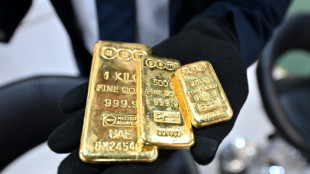
-
 Ter Stegen responds after Barcelona strips him of captaincy
Ter Stegen responds after Barcelona strips him of captaincy
-
Chelsea's Broja joins Burnley on five-year deal

-
 Three centurions as 'ruthless' New Zealand pile on runs against Zimbabwe
Three centurions as 'ruthless' New Zealand pile on runs against Zimbabwe
-
Three die in Greece as gales stoke fires, disrupt ferries

-
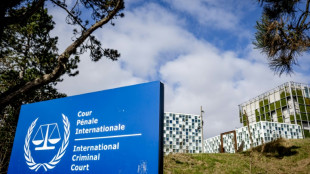 ICC unseals Libya war crimes warrant for militia officer
ICC unseals Libya war crimes warrant for militia officer
-
Montreal protagonists Mboko, Osaka out of Cincinnati Open

-
 Trump says court halt of tariffs would cause 'Great Depression'
Trump says court halt of tariffs would cause 'Great Depression'
-
Glasner says demotion to Conference League would punish 'innocent' Palace

-
 New Zealand build big total in 2nd Test against Zimbabwe
New Zealand build big total in 2nd Test against Zimbabwe
-
Trump hosts foes Armenia, Azerbaijan in his latest peace initiative

-
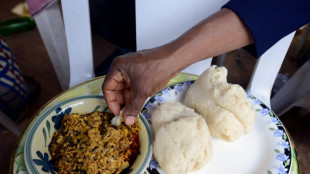 Nigerian scientists await return of Egusi seeds sent to space
Nigerian scientists await return of Egusi seeds sent to space
-
Pioneer spirit drives Swiss solar-powered plane altitude attempt

-
 Thyssenkrupp to spin off marine division amid defence boom
Thyssenkrupp to spin off marine division amid defence boom
-
Vance and Lammy talk Gaza, fish as US VP starts UK holiday

-
 Israel plans to 'take control' of Gaza City, sparking wave of criticism
Israel plans to 'take control' of Gaza City, sparking wave of criticism
-
Putin taps key allies ahead of Trump summit, sanctions deadline

| RBGPF | 1.7% | 73.08 | $ | |
| CMSD | 0.25% | 23.58 | $ | |
| JRI | 0.19% | 13.435 | $ | |
| BCC | -1.34% | 82.09 | $ | |
| SCS | -0.76% | 15.88 | $ | |
| NGG | -1.51% | 71.01 | $ | |
| BCE | 2.34% | 24.35 | $ | |
| RIO | 1.76% | 61.86 | $ | |
| SCU | 0% | 12.72 | $ | |
| RELX | -2.2% | 48 | $ | |
| GSK | 0.58% | 37.8 | $ | |
| RYCEF | -0.14% | 14.42 | $ | |
| VOD | 0.88% | 11.36 | $ | |
| BTI | 0.96% | 57.24 | $ | |
| CMSC | 0.39% | 23.05 | $ | |
| AZN | -0.69% | 73.55 | $ | |
| BP | -0.15% | 34.14 | $ |

Chinese tea hub branches into coffee as tastes change
At a mountainside cafe in southwestern China, Liao Shihao brews handfuls of locally grown beans into steaming cups of coffee, a modern twist on the region's traditional drink.
For centuries, Pu'er in Yunnan province has given its name to a type of richly fermented tea -- sometimes styled "pu-erh" -- famous across East Asia and beyond.
But as younger Chinese cultivate a taste for punchy espressos, frothy lattes and flat whites, growers are increasingly branching out into tea's historic rival.
"People are coming to try our hand-drip coffee... and more fully experience the flavours it brings," Liao, 25, told AFP.
"In the past, they mostly went for commercialised coffee, and wouldn't dabble in the artisanal varieties," he said.
Liao’s family has run the Xiaowazi, or Little Hollow, coffee plantation for three generations.
Nestled in a shady valley, spindly coffee trees line its steep hillsides, their cherry-like fruit drying on wooden pallets outside.
When AFP visited this month, clusters of tourists sipped boutique brews in the airy cafe overlooking its verdant slopes.
"It's very good," said Cai Shuwen, 21, as he perched on a bar stool lifting sample after sample to his lips.
"Even though some beans are more astringent than I imagined, others have exceeded my expectations."
- Brewing success -
Every year, Pu'er's plantations sell tens of thousands of tons of coffee to major Chinese cities, according to government data.
In metropolises such as Beijing and Shanghai, a thriving cafe scene has emerged in recent years, driven by people aged between 20 and 40.
To Liao, a trained roaster and barista, coffee from his home region possesses "a creamy flavour with a silky, viscous mouthfeel".
Modern commercial plantations only sprang up in Pu'er in the 1980s, and the area is still better known for its centuries-old tea trade.
Liao's grandfather, Liao Xiugui, said "nobody knew anything about coffee" when he arrived in Pu'er a few decades ago.
At the time, the older man was one of very few people in China who had studied coffee cultivation.
But the region's relatively high altitude and temperate climate were well-suited to the unfamiliar crop, the now 83-year-old told AFP.
"The quality of the coffee we plant here is strong but not too bitter, floral but not too heady, and slightly fruity," he added.
Free from artificial pesticides and interspersed with other species for biodiversity, Little Hollow yields about 500 tons of raw coffee fruit per year.
Liao Xiugui himself drinks two or three cups a day, and credits the caffeinated beverage for keeping him spry in his advanced years.
"Drinking coffee can make you younger and healthier... and prevent ageing," he smiled.
"Also, everyone is tired at work these days... and they want to give their brains a boost."
- Richer pickings -
China's coffee output has risen dramatically in recent years, though it still lags far behind traditional powerhouses such as Brazil, Vietnam and Colombia.
Yunnan, near three borders with Southeast Asian nations, accounts for virtually all of China's coffee production, much of it concentrated in Pu'er.
On a visit to Yunnan last month, President Xi Jinping said the province's coffee "represents China", according to state media.
Keen to further expand the sector, officials have rolled out policies to improve production, attract investment and boost exports, according to government statements.
They have also merged coffee production with tourism, dovetailing with a central government push to increase domestic consumption.
Longtime farmer Yu Dun, 51, said she had opened new income streams with plantation tours, homestays and a restaurant fusing coffee with the cuisine of her native Dai ethnicity.
Her prospects were bright, she said, adding that she also earned "10 times" more revenue from her beans since learning to process and roast them herself.
"We used to say only rich people could drink coffee, but that's all changed now," she said.
M.Qasim--SF-PST
